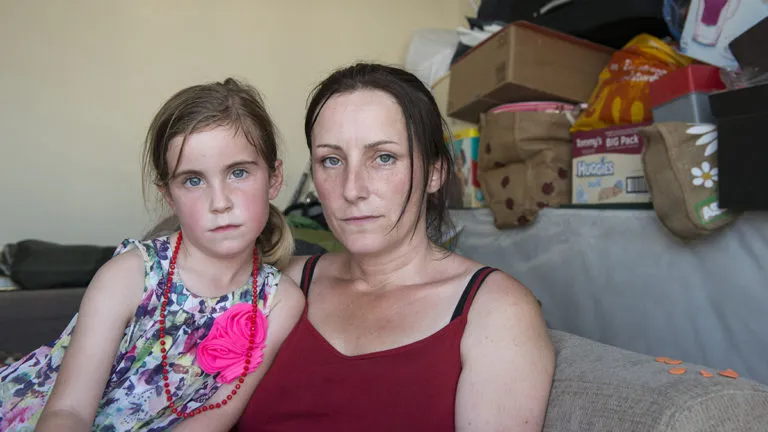Conservative Party Conference: Where is the government’s offer for struggling renters?
Published: by Rose Grayston

In its mission to use Conservative Party Conference to promote homeownership, the government has all but forgotten about struggling renters on low to average incomes. Here, we explain why piecemeal changes to shared ownership fail to tackle the roots of our housing emergency.
In the last two years, Conservative Party Conference has brought some welcome news for struggling renters. In 2017, Theresa May used her speech to announce the first funding for truly affordable social rent homes since 2010. In 2018, the former PM shocked the housing sector by scrapping the cap on councils’ borrowing for housebuilding, removing the single biggest barrier to councils playing their full part in meeting the nation’s housing needs.
Was it enough? Obviously not. Last year England built just 6,434 social rent homes. This for a waiting list of 1.1 million people in a country where 124,000 children are growing up with no permanent home.
Nonetheless, we at Shelter hoped the new government would continue inching towards a revival of social housing – the only way to end our housing emergency once and for all. But so far we have heard almost nothing about social housing from the new cabinet. While Housing Minister Esther McVey has said, ‘we need to be building more of all kinds of houses – council, social and private’, we have heard nothing about how the government intends to turn this ambition into reality. Secretary of State Robert Jenrick is firmly focused on ‘low-cost homeownership’ options like shared ownership, having consulted on piecemeal changes for existing shared owners over the summer. On Monday, he used his speech at the Conservative Party Conference to pledge further tweaks to social renters’ options for converting their rented homes into shared ownership.
Since 2006, Social HomeBuy has allowed social renters who do not quality for the Right to Buy, or who cannot afford to use it, to buy shares in their rented home instead – with the help of a small discount. On Monday, Jenrick suggested he wants to see more of this in future, reducing the minimum starting share social tenants can buy from 25% to 10%. He has also proposed making this option available to all new housing association residents, and working with providers to ultimately extend it to all existing residents. Currently providers are allowed to opt out.
There is nothing wrong in principle with making shared ownership work a little better for those already using it, or with making it a little more affordable for those on the cusp of accessing it, although we are concerned about the unintended consequences of this idea. But what about the millions of renters who are nowhere near being able to afford any type of ownership?
The limits of ‘low-cost homeownership’
Schemes like shared ownership are only ‘low-cost’ compared to the sky-high prices of market sale homes. Shelter research from 2016 found that while these schemes can provide a stepping stone for higher earning households, renters with low and even average earnings are priced out.
This shouldn’t surprise us. Renters spend a far greater proportion of their incomes on housing costs than homeowners, so for many it is impossible to build up savings on the scale needed to access shared ownership, or the other ‘low-cost homeownership’ options favoured by government policy, which all involve paying a deposit and a range of fees. In fact, 63% of households in the PRS and 83% of households in social housing have no savings at all. There is no version of shared ownership which does anything for these households. So what is the government’s plan for them?
What should government do?
The policies the new government has announced so far suggest there is no new plan for renters who do not currently have enough savings to access some kind of homeownership. This may be short-sighted given the likelihood of a general election in the next few months. Political parties ignore these voters at their peril.
If the government wants an offer for struggling renters, the solutions are clear:
- build social housing for those stuck in unaffordable, insecure private renting
- follow through on the government’s commitment to end section 21 no-fault evictions, so that families can’t be evicted for no good reason with only eight weeks notice
- end the freeze to Local Housing Allowance and increase rates so that benefits cover the costs of private renting
The main impact of Monday’s announcements will be to turn social rent homes into shared ownership homes. At a time when we desperately need all the social housing we can get to tackle the housing emergency, the government plans to sell off even more of it.
The National Housing Federation has also raised serious concerns about the impact of the proposals on future social rent supply. Because banks consider social rent safer to lend against than shared ownership, converting social homes into shared ownership will affect housing associations’ existing and future loans, making it more expensive for them to borrow to build and maintain homes.
Those who have limited housing options today may have even fewer tomorrow. It is time the government got serious about solving our housing emergency rather than tinkering at its edges.
Join 70,000 other supporters. Ask the new government to build a new generation of social housing by signing our petition.
You can also read Shelter chief executive Polly Neate’s opinion piece for the Huffington Post on housing at Conservative Party Conference.